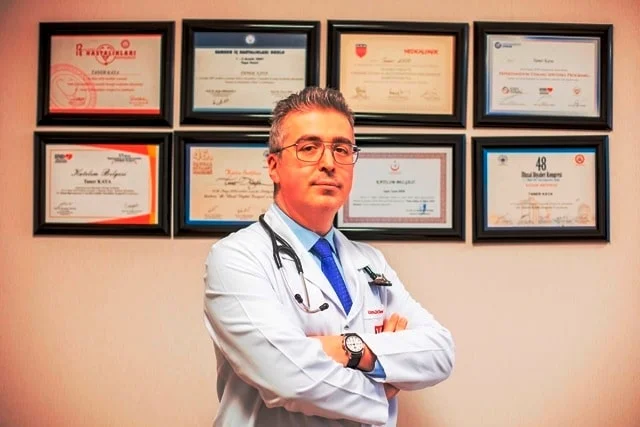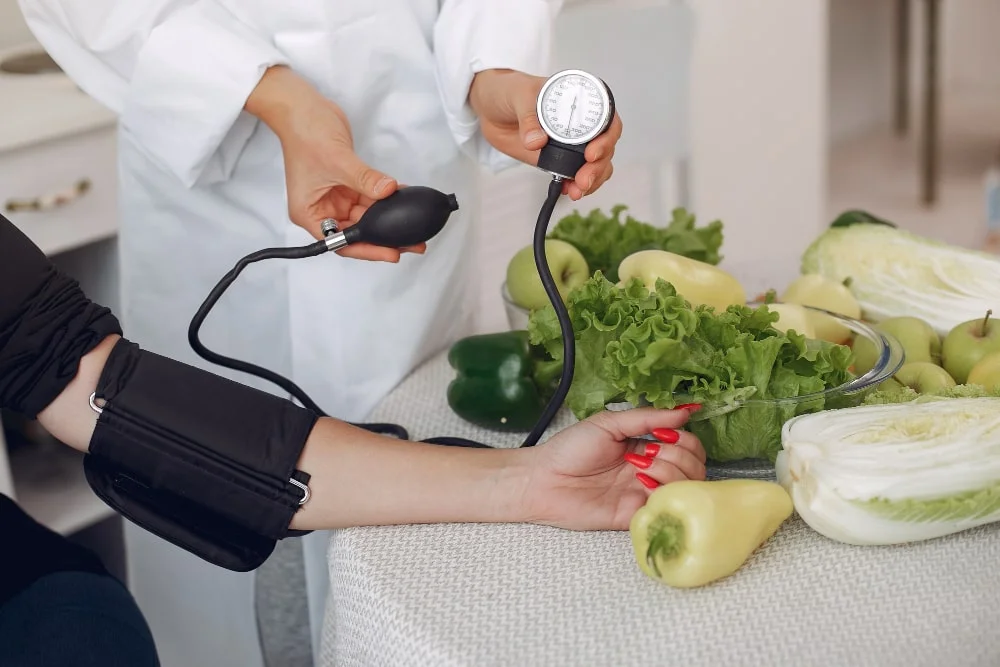What is Hypertension?
Blood pressure is the pressure exerted by the blood against the walls of the blood vessels. When this pressure rises above a certain level, it is called 'High Blood Pressure' or 'Hypertension.' Blood vessels exposed to high pressure lose their characteristics over time and can cause deterioration in organs such as the heart, kidneys, and brain that they supply. Hypertension is a disease that causes damage to our organs over the years without any symptoms. In our country, almost 15 million people have hypertension. Although the number of hypertension patients is high, adequate blood pressure control is not achieved in half of these patients. Moreover, there are many patients who do not even know that they have hypertension. In Turkey, one in every two people over the age of 40 has hypertension.
Hypertension, a chronic disease, is becoming more prevalent in society, and unfortunately, only a small portion of patients can be treated effectively. There are approximately 1.5 billion hypertension patients worldwide, and every year, 9.4 million people die due to hypertension.
Causes of Hypertension
There are 12 main causes of hypertension:
- Excessive salt consumption
- Abnormal blood vessel structures
- Excess blood volume
- Genetic predisposition
- Sensitive personality (Panic disorders)
- Adrenal gland disorders
- Kidney problems
- Thyroid problems
- Congenital heart and vascular issues
- Nervous system diseases
- Neurohormonal disorders (Neuroendocrine tumors)
- Potassium deficiency
Symptoms of Hypertension
Hypertension does not show any symptoms in its early stages. Being a stealthy disease, hypertension causes damage to the kidney, brain, heart, and vascular system over the years without any symptoms. It can last for years without any symptoms in a person and can cause irreversible damage to organs during this time. Hypertension is the single largest cause of death worldwide, leading to stroke, heart attack, kidney diseases, and diabetes.
Efforts are being made to increase the awareness of hypertension in society, a disease that cannot be detected without measurement. Even if you have no complaints, it is necessary to measure your blood pressure and know its value.
Despite being a stealthy disease, the most prominent hypertension symptoms include headache, dizziness, shortness of breath, palpitations, chest pain, and vision problems. Additionally, less common symptoms may include fatigue, weakness, nosebleeds, ringing in the ears, difficulty walking and climbing stairs, frequent urination, waking up at night to urinate, and swelling in the legs. If one or more of the symptoms of hypertension are felt, a doctor should be consulted.
Treatment Types of Hypertension
Since there are many causes of hypertension, its treatment is not one-size-fits-all and is provided with personalized medication selection.
The first choice in lowering high blood pressure is lifestyle changes. Getting regular sleep, exercising, changing eating habits, losing weight, and avoiding harmful habits like smoking and alcohol are indispensable for hypertension treatment.
In addition, medication therapy should be started to lower blood pressure. In hypertension treatment, medications act on the kidneys, heart, blood vessels, and nervous system through different pathways. The different modes of action of the medications change their dosage and usage form. Comparing medications with a high mg dosage to those with a lower mg dosage would be incorrect. It wouldn't be right to think, "My blood pressure medication is 300 mg, how can a 5 mg medication be effective?"
If you do not trust a medication or think it is not effective, consult your doctor.

Spc. Dr. Taner KAYA
Internal Medicine Specialist


